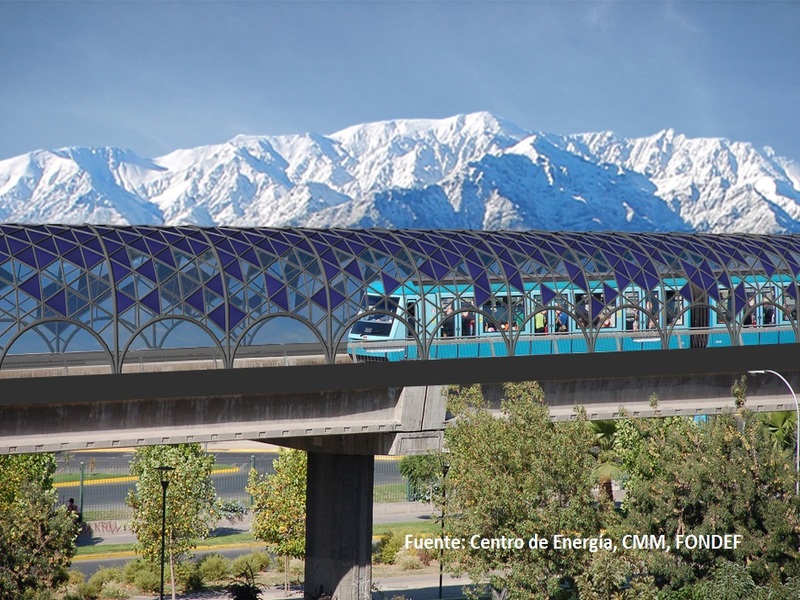
Solar Metro
The general objective of this project was to develop a computational system to simulate and optimize the energy performance of an urban rail transportation system and to evaluate operational and technological alternatives, such as the introduction of solar energy to the transportation network. The developed model was applied to simulate the operation of the Santiago Metro.
During the development of the project, models were developed to simulate the operation of the Santiago Metro, optimize speed curves, simulate the use of storage systems and simulate the introduction of solar energy. The solar generation potential using the surface of the tracks varies between 22 and 38 MW, the potential of the stations was estimated at 14 MW, and the generation potential of the surface of the workshops and depots was 14 MW. With this potential, up to 16% of the electricity demand of METRO de Santiago could be satisfied.
The project was developed by the Energy Center and the Mathematical Modeling Center of the University of Chile.
The project “Optimal integration of solar energy in the planning and operation of urban rail public transport systems” was funded by FONDEF.

Solar Metro
The general objective of this project was to develop a computational system to simulate and optimize the energy performance of an urban rail transportation system and to evaluate operational and technological alternatives, such as the introduction of solar energy to the transportation network. The developed model was applied to simulate the operation of the Santiago Metro.
During the development of the project, models were developed to simulate the operation of the Santiago Metro, optimize speed curves, simulate the use of storage systems and simulate the introduction of solar energy. The solar generation potential using the surface of the tracks varies between 22 and 38 MW, the potential of the stations was estimated at 14 MW, and the generation potential of the surface of the workshops and depots was 14 MW. With this potential, up to 16% of the electricity demand of METRO de Santiago could be satisfied.
The project was developed by the Energy Center and the Mathematical Modeling Center of the University of Chile.
The project “Optimal integration of solar energy in the planning and operation of urban rail public transport systems” was funded by FONDEF.
